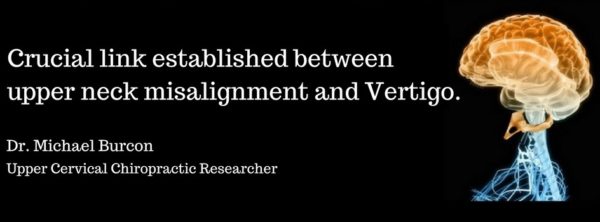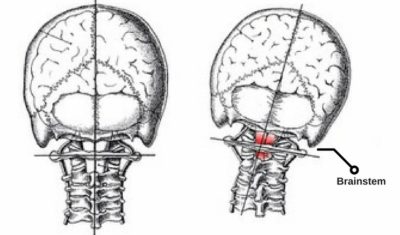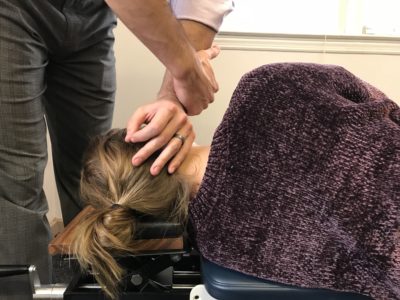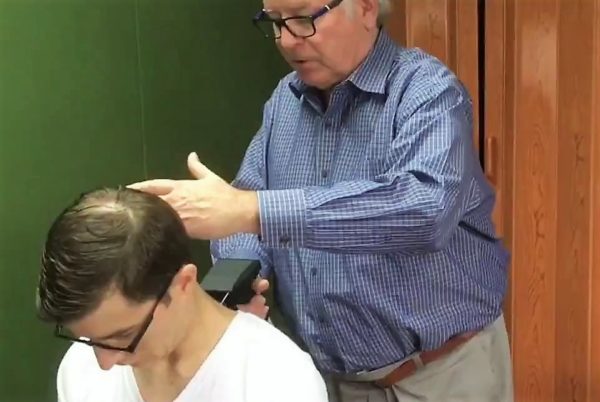Vertigo / Meniere’s Disease Relief and NUCCA

NUCCA is proven to be safe, gentle, and effective at reducing common types of Vertigo.
Important Link Between Upper Neck Misalignment & Vertigo
Dr. Michael Burcon identifies neck involvement in vertigo sufferers.
Dr. Michael Burcon examined 139 people suffering from Vertigo and Meniere’s Disease. It was found that 139 of 139 patients had previously experienced an injury to the upper neck creating an upper cervical misalignment. Upper Cervical Chiropractic corrections were gently used to address the upper cervical misalignment in those studied. Dr. Burcon re-examined these patients two years following their initial correction and found that 98% saw an average reduction in symptoms from an 8.5 to a 1.4.
Dr. Burcon was the first to establish a link between upper neck injury and vertigo. He found that many patients forgot about prior injuries or did not realize a neck injury occurred during traumas like car accidents, whiplash, or other head injuries. These mild traumas misalign the top bone of the neck, creating a lesion that affects the Eustachian Tube and inner ear. Over time this leads to inner ear dysfunction and vertigo symptoms. It makes sense this correlation was not been made sooner as it takes an average of 15 years from the time the patient was injured until the onset of symptoms.
139 of 139 vertigo patients previously suffered cervical damage due to injuries in their upper neck.
What Causes Vertigo?

Upper neck misalignment irritates nerves, affect Eustachian Tube function, and leads to improper flow of fluids out of the inner ear. All of which are factors that contribute to Vertigo.
An Upper Neck Problem
Our vestibular system is responsible for maintaining balance and tells our body where it is in relation to our surroundings. This crucial system relies on perfect communication between the inner ear and the brainstem, located in the upper neck. No one is sure of the exact cause(s) of the Vertigo and Meniere’s Disease, but current research reveals a strong connection to a misalignment of the upper neck. Misalignment in the upper cervical spine has been shown to irritate nerves, affect Eustachian Tube function, and leads to improper flow of fluids out of the inner ear. All of these problems are capable of negatively affecting our vestibular system, and may lead to Vertigo and Meniere’s Disease.
The good news is a high percentage of Vertigo sufferers have responded well following a correction of the upper neck misalignment. This correction has been shown to restore communication of the vestibular system, significantly reducing symptoms.
Vertigo Inducing Conditions
No one is exactly sure what causes Vertigo and Meniere’s Disease, but researchers have been able to identify between different types of this condition. Some forms have origins in the ear itself, while some are more focused to the neck, and others are a combination of both. Here is a list of common Vertigo inducing conditions:
NUCCA has been the Solution for Many Suffering from Vertigo
NUCCA has developed a very precise, gentle and sophisticated procedure to correct misalignment in the upper neck without any twisting or popping! This balances nerve communication, allows proper Eustachian Tube function, and restores fluid flow out of the ear. All of which are important in helping reduce vertigo naturally.
NUCCA Chiropractors frequently find a significant upper neck misalignment in those suffering with Vertigo and Meniere’s Disease. To see if your symptoms are stemming from this same problem, visit your New Jersey NUCCA Chiropractor. Consultations are complimentary and will allow your doctor to identify if an upper cervical spinal misalignment is the cause to your problem.



